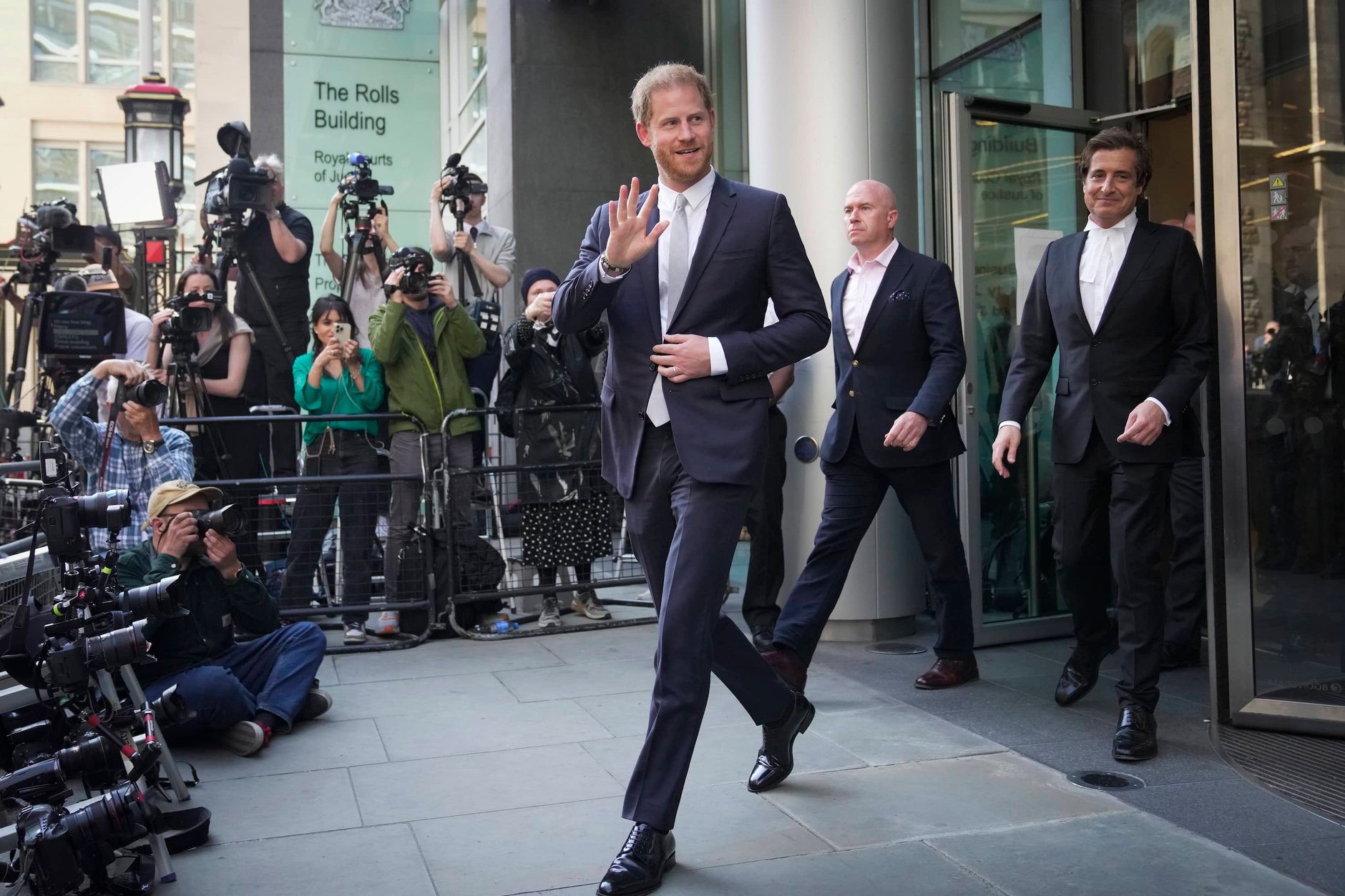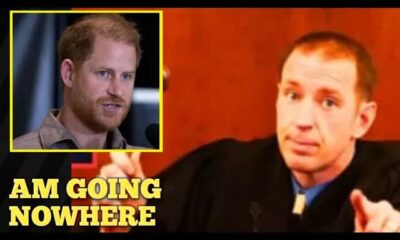The News
Prince Harry’s Legal Battle: A Royal Title Denied in Court
In a recent twist in the ongoing legal saga involving Prince Harry and the UK government, a judge has made headlines by refusing to address him as a prince during court proceedings.
This case revolves around Harry's quest for police protection after he and Meghan Markle stepped back from their royal duties in early 2020, a move that sent shockwaves through the monarchy and beyond.
As the legal battle unfolds, the implications of this refusal highlight deeper tensions surrounding royal status and public safety.
When Harry and Meghan announced their decision to step down as senior royals—a departure now commonly known as “Megxit”—they also agreed to forfeit their taxpayer-funded police security.
This arrangement seemed logical at the time, given their relocation to North America and their desire for financial independence.
However, Harry has since expressed concern for his family's safety during visits to the UK, arguing that without adequate police protection, they remain vulnerable.
In 2021, Harry initiated legal action against the UK government, challenging the decision to strip him of police security.
His legal team contended that his private security in the U.S. could not provide the same level of protection while in Britain.
The aim was to have a judge determine whether the removal of his police protection was lawful, leading to an ongoing legal confrontation with the Home Office.
The first hearing took place earlier this year at the High Court in London, where things took an unexpected turn.
During the proceedings, Harry's lawyers referred to him as “Prince Harry,” but the presiding judge, Mr. Justice Swift, opted to call him “Mr. Harry Sussex” or simply “Mr.
Sussex.”
This decision seemed deliberate, signaling a clear intent to separate Harry's royal identity from his legal standing in court.
Legal experts noted that such a refusal to use an accepted title is unusual.
It raises questions about the significance of royal titles in legal contexts.
By addressing Harry as “Mr.,” the judge appeared to treat him as any other private citizen seeking justice, rather than a member of the British royal family.
This choice could suggest that the judge viewed Harry's royal status as irrelevant to the legal proceedings at hand.
Several theories have emerged regarding the judge's reasoning.
One perspective posits that the judge aimed to emphasize that Harry was no longer representing the monarchy in any official capacity.
Another theory suggests that the judge sought to maintain the court's impartiality, ensuring that the case was evaluated solely on its legal merits, free from royal influence.
Harry reportedly reacted with frustration to the judge's refusal to acknowledge his title.
Friends close to him indicated that he felt this slight undermined his credibility and diminished the seriousness of his security concerns.
However, some legal analysts argue that Harry's anger may be misplaced, asserting that the judge acted within his rights to address the claimant as he deemed appropriate.
On the government side, officials welcomed the judge's stance, interpreting it as a reinforcement of Harry's non-working royal status.
They hope this sends a clear message that he cannot leverage his past royal privileges in this civil matter.
As the case progresses, the dynamics surrounding Harry's title may continue to play a significant role in the public narrative.
The initial hearing also touched on whether Harry's application for a judicial review was premature, given that he had not yet explored all private avenues for resolving his security concerns.
Ultimately, the judge ruled in favor of the government, leading to a procedural dismissal rather than a substantive ruling on Harry's claims.
This outcome, while disappointing for Harry, does not preclude further action; his legal team remains committed to pursuing alternative options.
As news of the courtroom drama spreads, commentators have weighed in on the implications of the judge's decision.
While many agree that the judge acted within his discretion, there are concerns that the approach may lack sensitivity, given Harry's unique position as a high-profile member of the royal family.
For Harry, the refusal to recognize his title highlights the challenges he faces in fully detaching himself from his royal past.
Supporters argue that this incident underscores the difficulties he encounters in navigating a life marked by both independence and the enduring legacy of his royal heritage.
As the legal battle continues, it remains uncertain how the issue of Harry's title will evolve.
The complexities of this situation reflect broader themes about privilege, identity, and the expectations placed on public figures.
With each development, the story promises to reveal more about the intricate relationship between Harry, his former royal obligations, and the British institutions that still loom large in his life.




































































